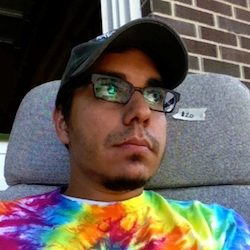
Computation has revolutionized how modern science is done. Modern scientists use computational techniques to reduce mountains of data, to simulate impossible experiments, and to develop intuition about the behavior of complex systems. Much of the research completed by modern scientists would be impossible without the use of computation. And yet, while computation is a crucial tool of practicing scientists, most modern science curricula do not reflect its importance and utility. In this talk, I will discuss the urgent need to construct such curricula in physics and present research that investigates the challenges at a variety of all scales from the largest (institutional structures) to the smallest (student understanding of a concept). I will discuss how the results of this research can be leveraged to facilitate the computational revolution. This research will help us understand and develop institutional/departmental incentives, effective teaching practices, evidence-based course activities, and valid assessment tools.
Bio
Marcos (Danny) Caballero is a physics education researcher who studies how tools and science practices affect student learning in physics, and the conditions and environments that support or inhibit this learning.Danny earned my B.S. in physics from the University of Texas at Austin in 2004. He worked on opto-microfluidics transport and control experiments at the Georgia Institute of Technology earning his M.S. in physics before shifting his research focus to physics education. He helped found the Georgia Tech Physics Education Research group in 2007 and earned the first physics education focused Ph.D. from Georgia Tech in 2011 working on computational modeling instruction and practice. Danny moved to the University of Colorado Boulder as a postdoctoral researcher and helped transform upper-division physics courses to more active learning environments. Danny conducts research from the high school to the upper-division and is particularly interested in how students learn physics through their use of tools such as mathematics and computing.
His work employs cognitive and sociocultural theories of learning and aims to blend these perspectives to enhance physics instruction at all levels. His projects range from the fine-grained (e.g., how students engage with particular computational ideas) to the course-scale (e.g., what kind of computing students are able to do after instruction) to the very broad (e.g., how do departments value computation). Presently, Danny co-directs the Physics Education Research Lab at MSU and serves as research faculty at the University of Oslo's Center for Computing in Science Education.
